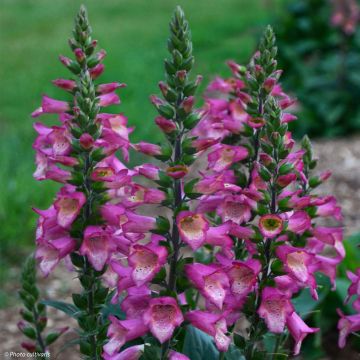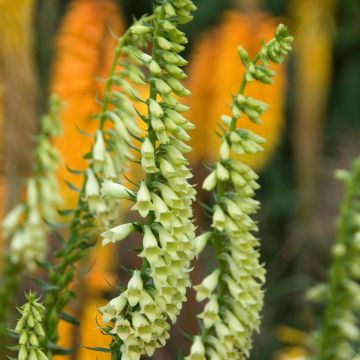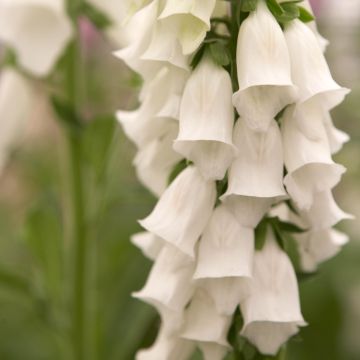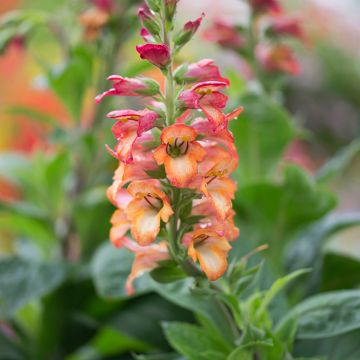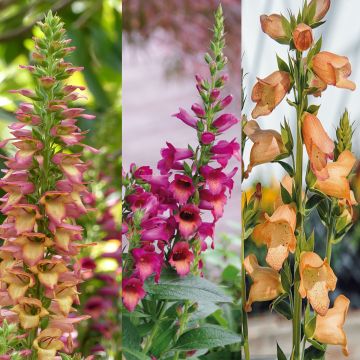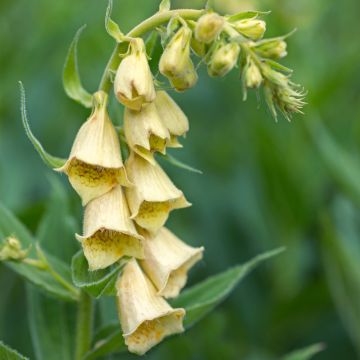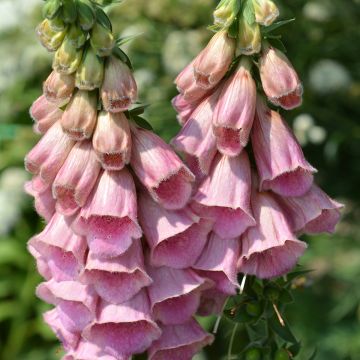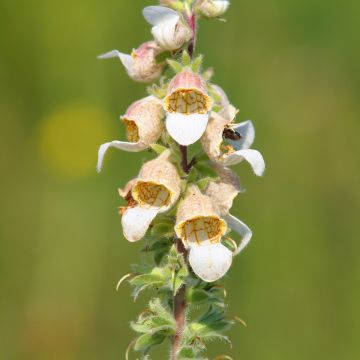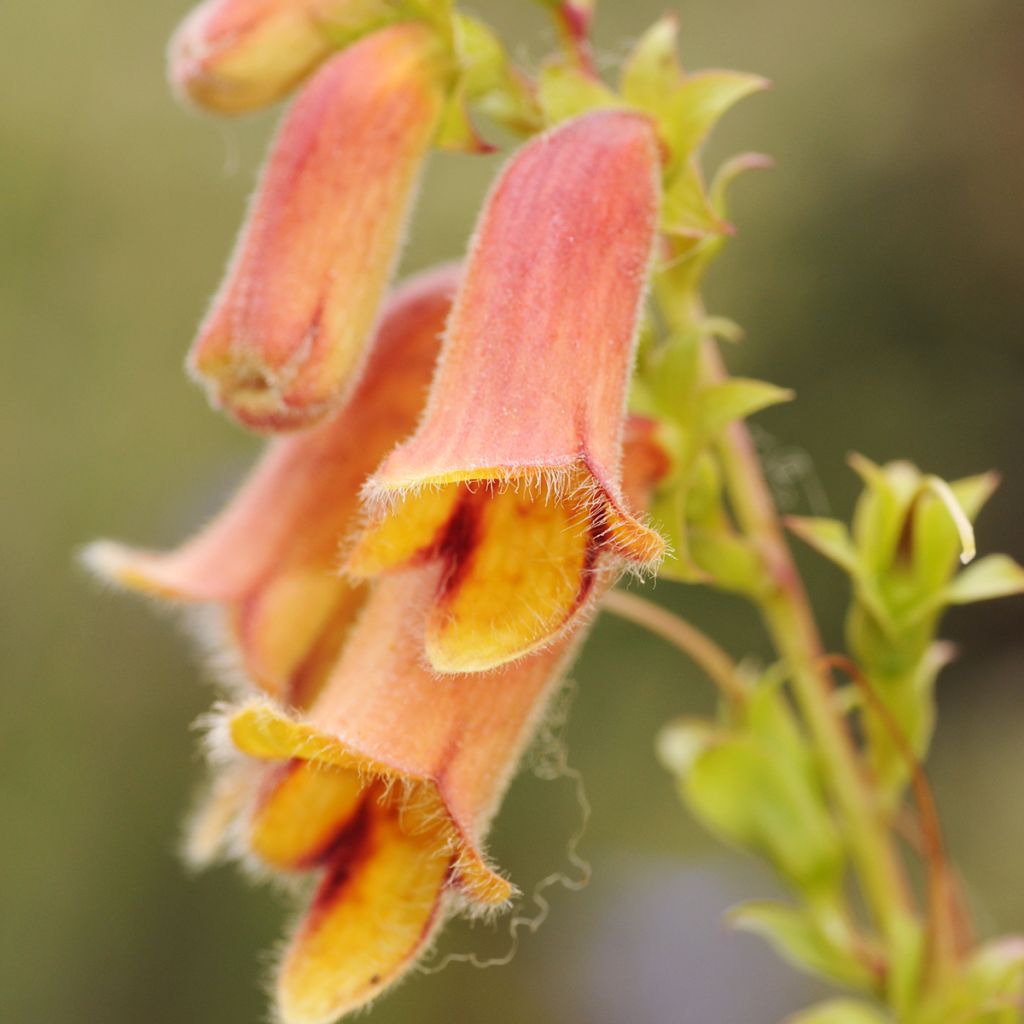

Digitalis obscura - Foxglove
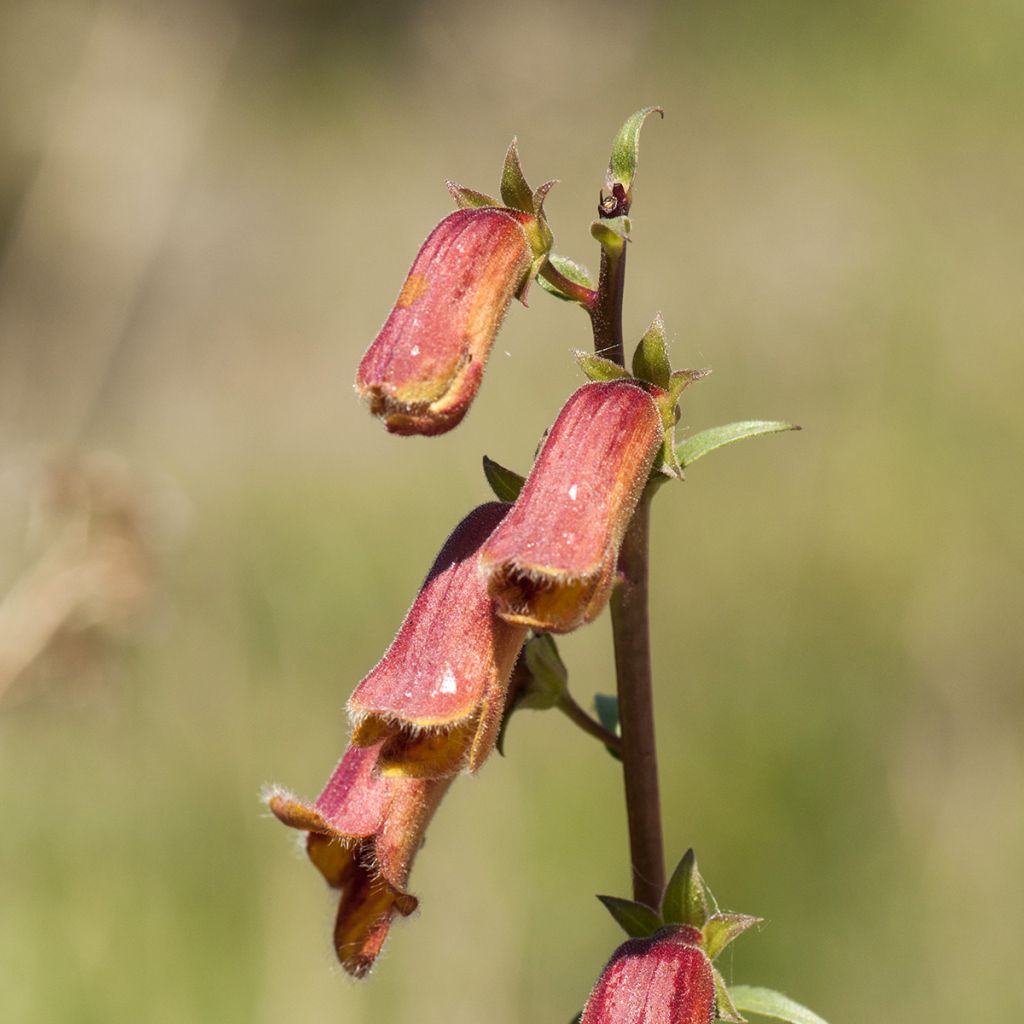

Digitalis obscura - Foxglove
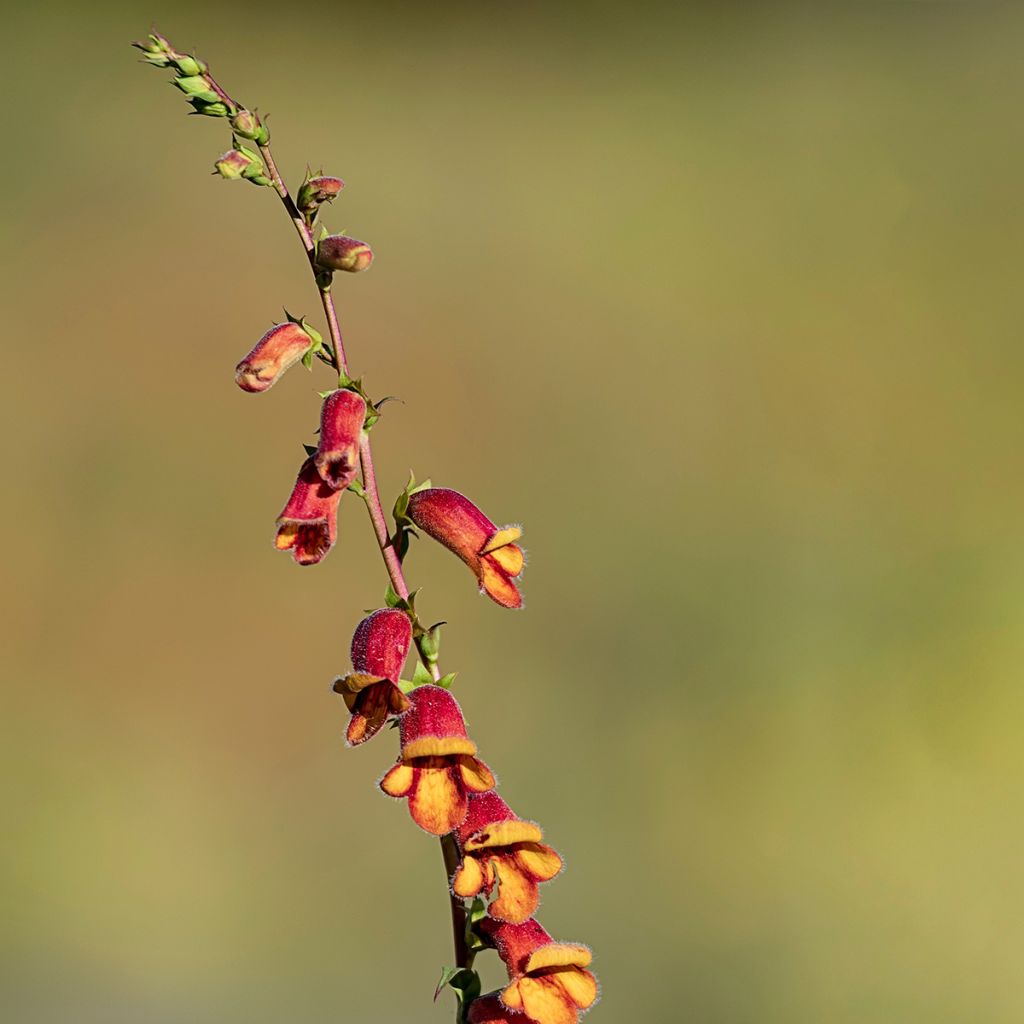

Digitalis obscura - Foxglove
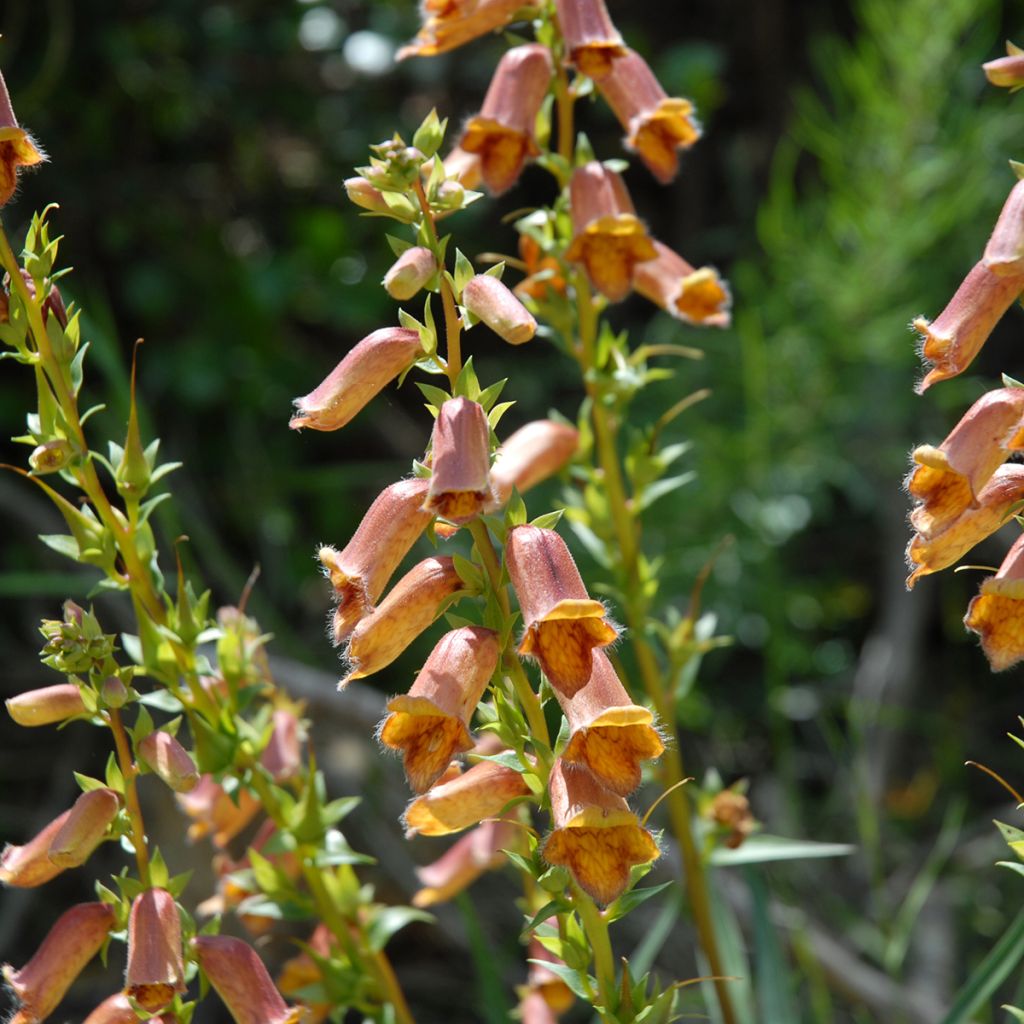

Digitalis obscura - Foxglove
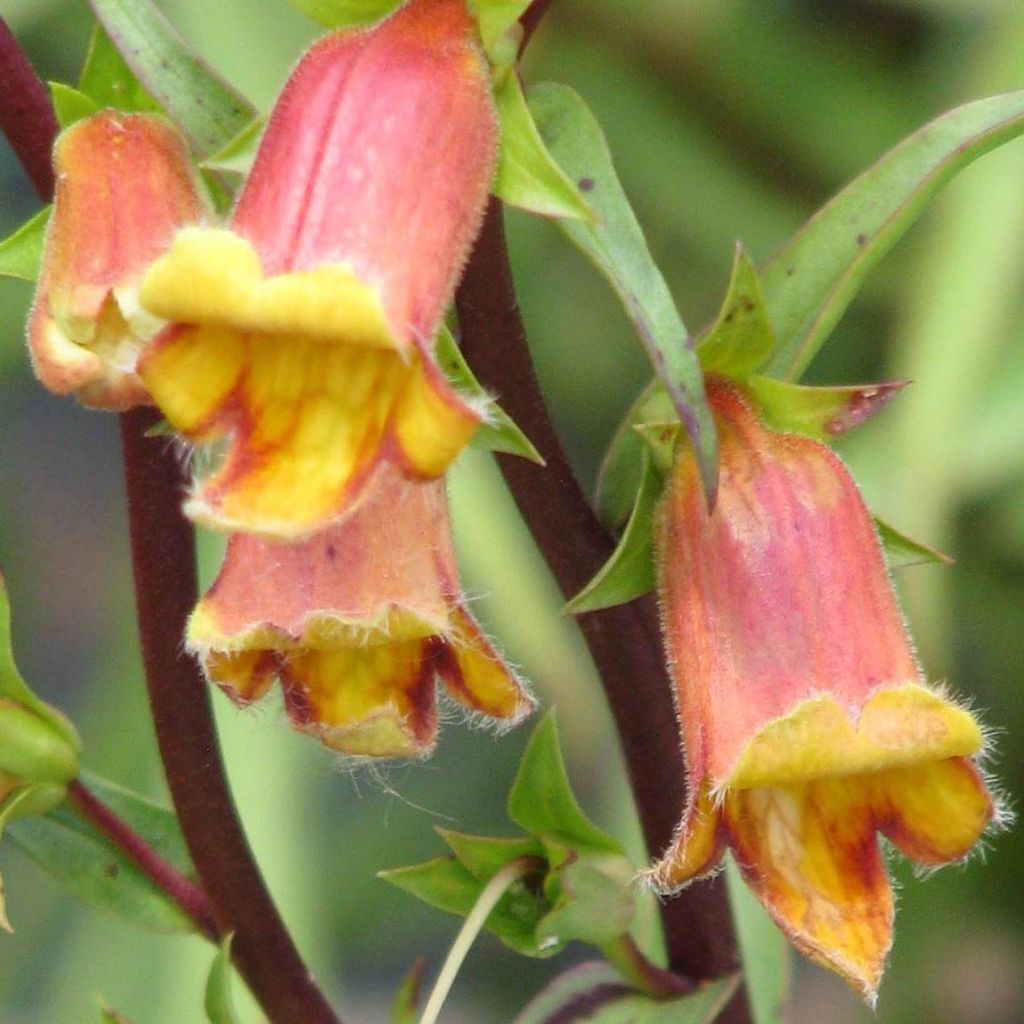

Digitalis obscura - Foxglove
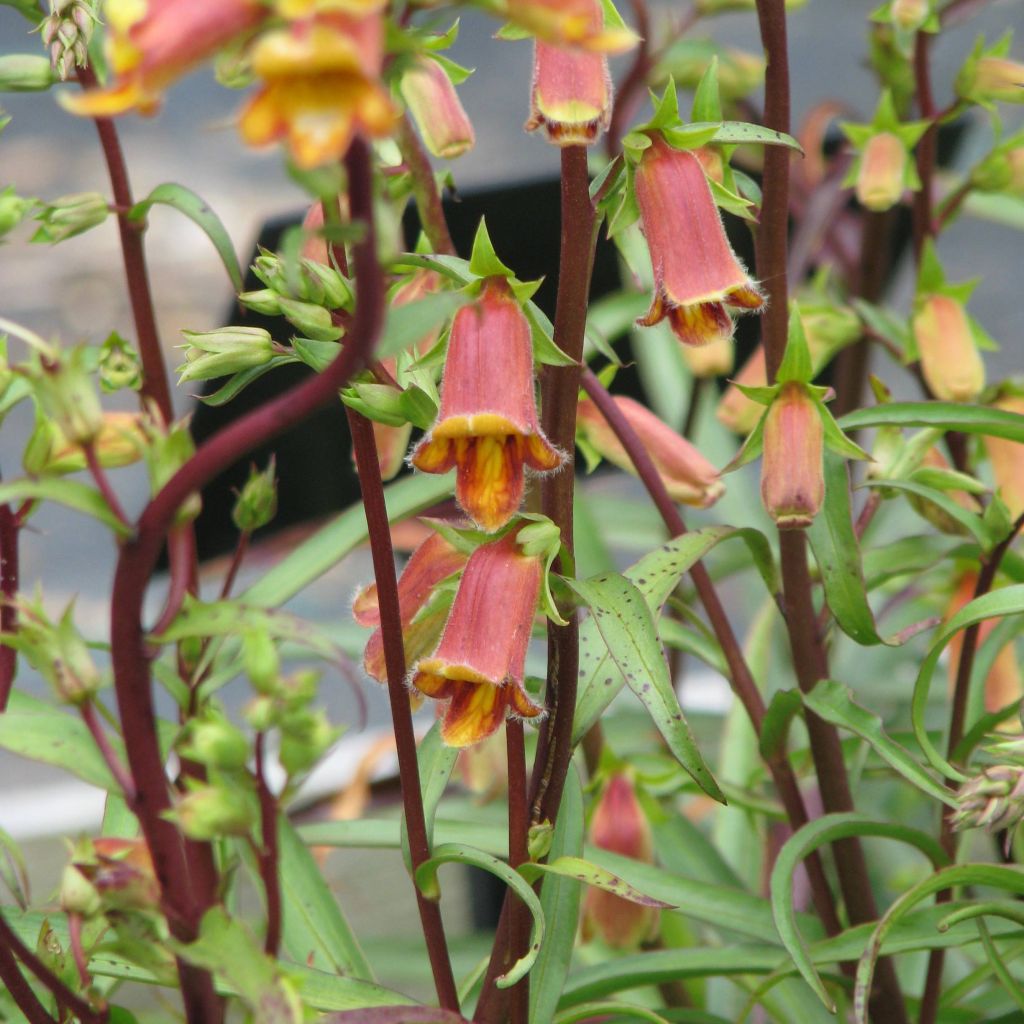

Digitalis obscura - Foxglove
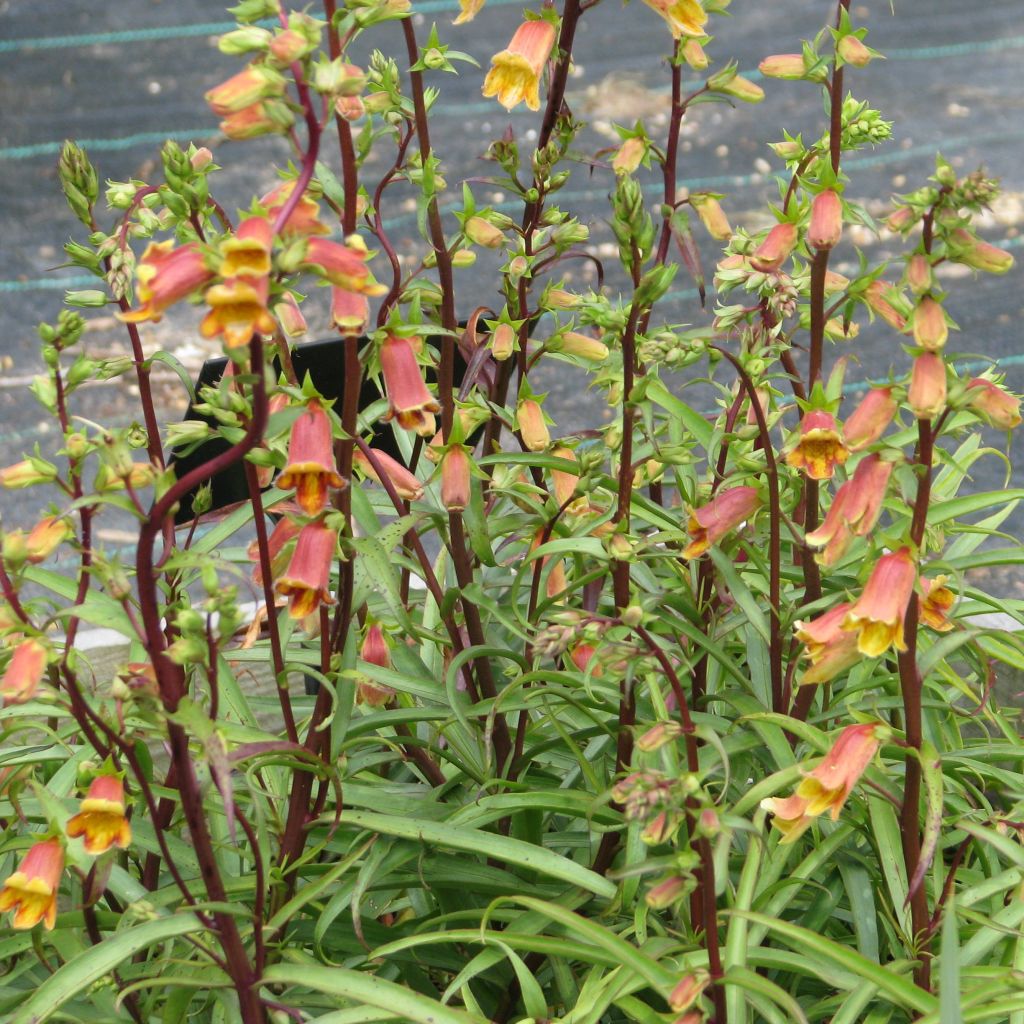

Digitalis obscura - Foxglove
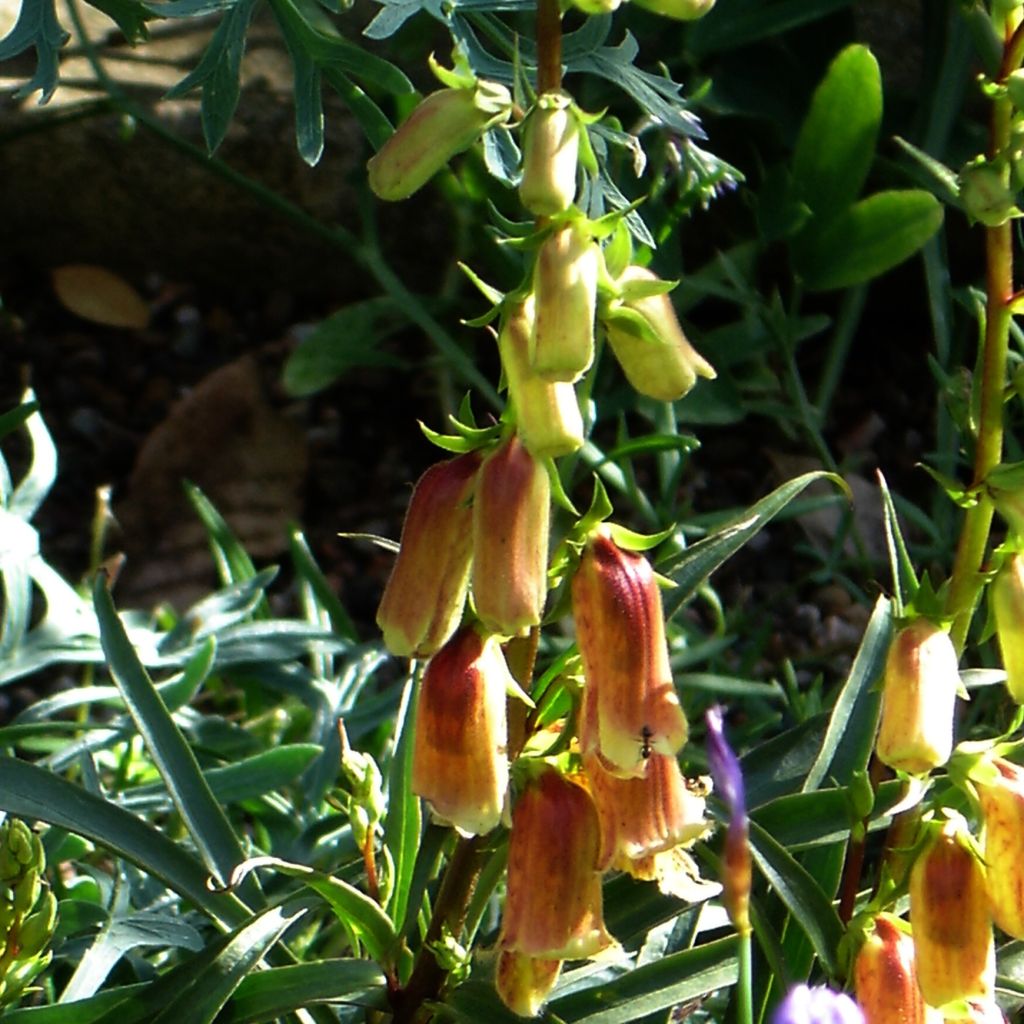

Digitalis obscura - Foxglove
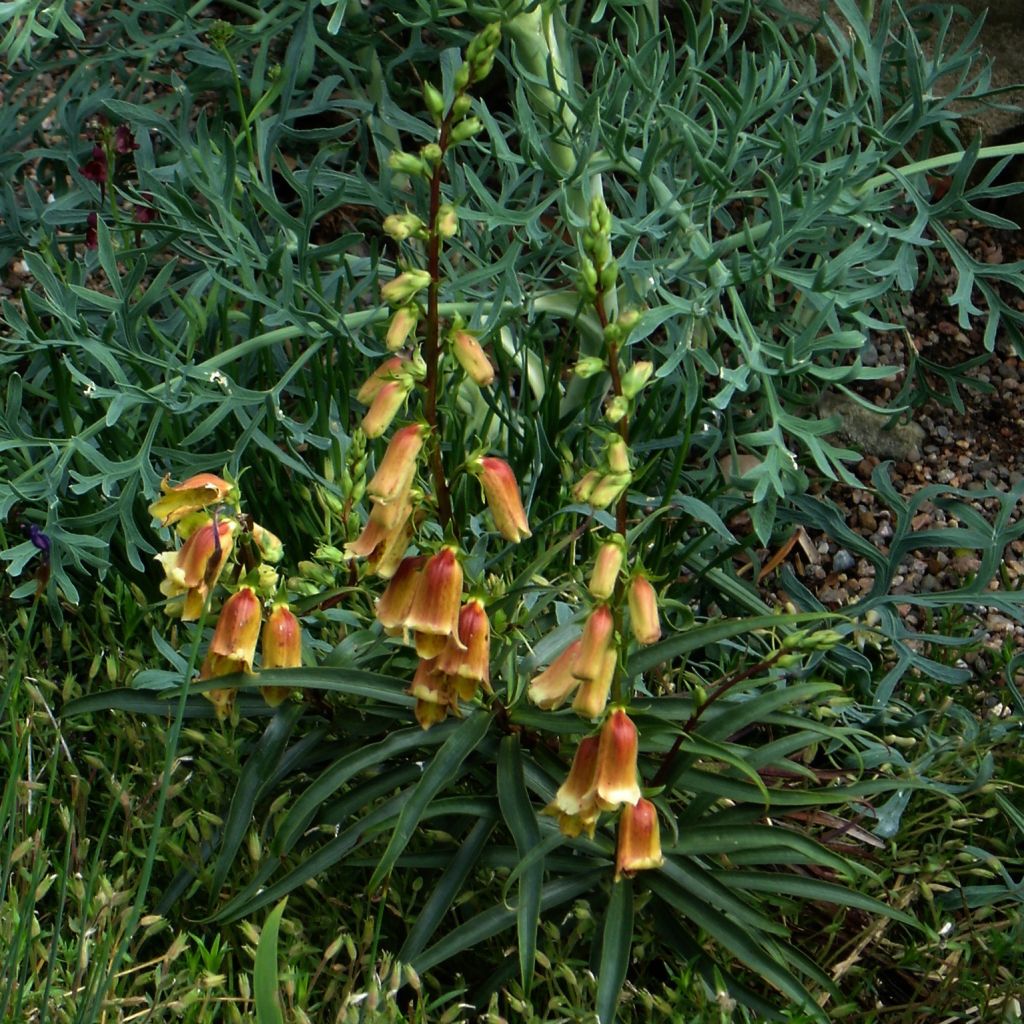

Digitalis obscura - Foxglove
Digitalis obscura - Foxglove
Digitalis obscura
Willow-leaved Foxglove, Sunset Foxglove
This item cannot be shipped to the selected country
Delivery charge from €5.90
More information
Schedule delivery date,
and select date in basket
This plant carries a 12 months recovery warranty
More information
We guarantee the quality of our plants for a full growing cycle, and will replace at our expense any plant that fails to recover under normal climatic and planting conditions.
From €5.90 for pickup delivery and €6.90 for home delivery
Express home delivery from €8.90.
Does this plant fit my garden?
Set up your Plantfit profile →
Description
Digitalis obscura is a curious botanical shrub native to Spain, perfectly adapted to dry terrain and sun. It is a perennial with a stout habit, or a more or less ramified base, bearing spikes of small tubular flowers and very narrow foliage, somewhat reminiscent of a penstemon. Its flowers are small but very numerous, and far from being obscure, they are adorned with warm shades, in a blend of beige, ochre, copper and mahogany colours. Unique and truly graceful, it is also very hardy in well-drained soil, even in the mountains.
Digitalis obscura is a woody-based herbaceous perennial plant in the Plantaginaceae family. It is native to the mountains and coastal plains of Southeast Spain and North Africa. While it prefers dry climates at high altitudes, it adapts very well to other growing conditions, provided it receives plenty of sunlight and a gravelly or sandy soil, which is well-drained and not too chalky. Its drought resistance is proven when the plant is well rooted.
This upright foxglove will reach about 60 cm (24in) in height when flowering and spread over 40 cm (16in). Its stems, brownish at the base, bear narrow leaves 10 to 15 cm (4 to 6in) long, smooth, shiny, leathery, bluish-green or greyish, decorative, spirally inserted towards the lower part of the spike. This spike elongates in late spring, carrying numerous flowers 2 to 3 cm (1in) long on more than half of its upper part. Each brown-rust to beige flower shows a throat dotted with red. This flowering, which takes place from May-June to July-August, or even September depending on the climate, is nectar-rich and attractive to bees. This foxglove easily self-seeds where it thrives.
Many gardeners believe that foxgloves like slightly cool and shady places, which is true for the majority of them. However, there are some Mediterranean botanical species that are particularly interesting in dry gardens or simply in areas with little summer rainfull: Digitalis obscura, as well as D. lanata, D. lutea, and D. orientalis. Digitalis obscura loves sunny mountain scree with a south facing aspect, and also performs well in partial shade in hot and dry climates, in the company of rockroses, lavenders, savorys, cotton lavenders, and salvias (S. sclarea, S. palaestina, S. chamaedryoides).
Naturally, it found its place in our garden in full sun and in the scree garden, alongside grasses, Yuccas, and kniphofias. Its flowers also last very well in a vase.
Report an error about the product description
Digitalis obscura - Foxglove in pictures
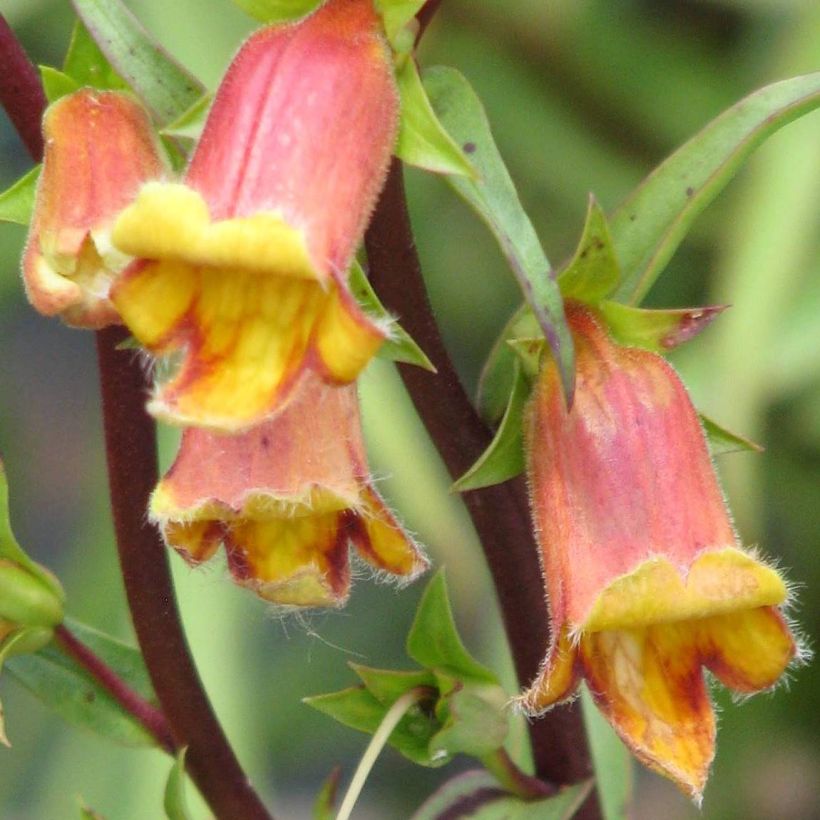

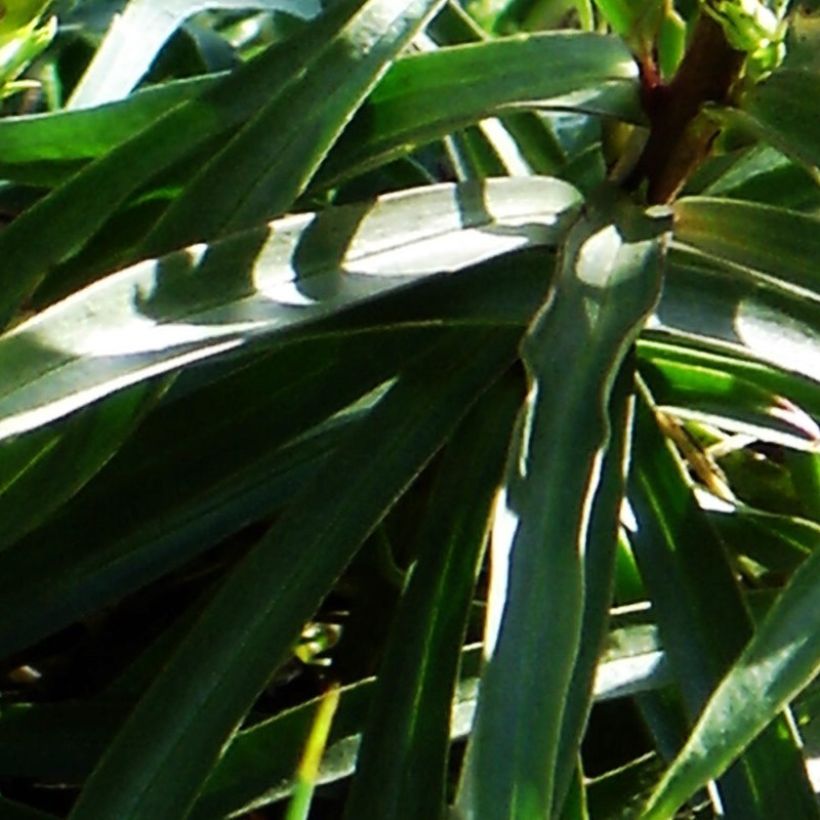

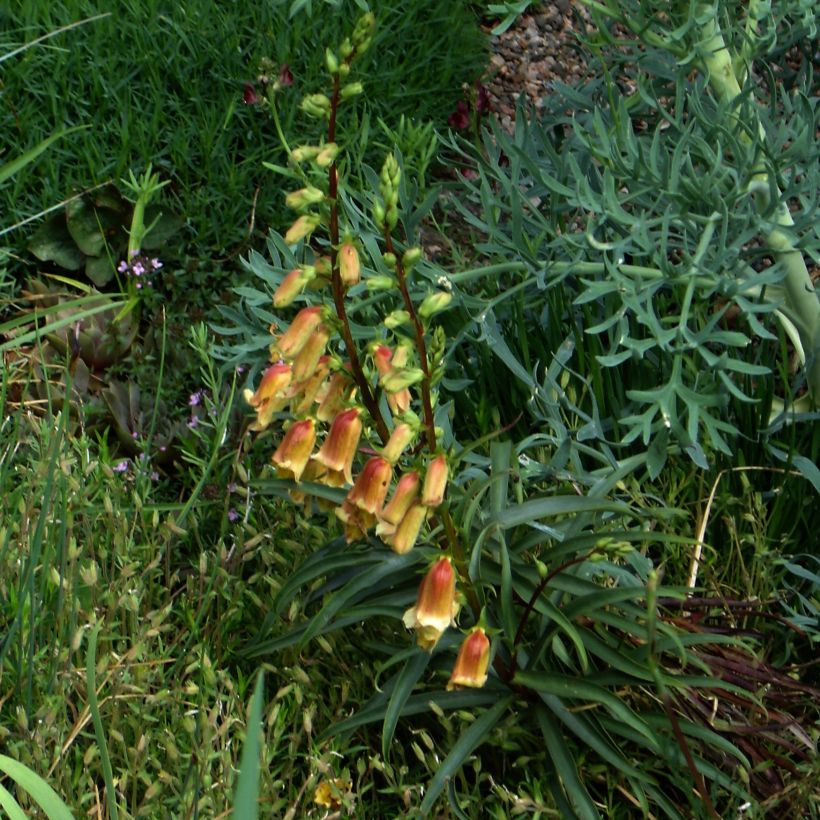

Flowering
Foliage
Plant habit
Safety measures
Botanical data
Digitalis
obscura
Scrophulariaceae
Willow-leaved Foxglove, Sunset Foxglove
Mediterranean
ingestion
Cette plante est toxique si elle est ingérée volontairement ou involontairement.
Ne la plantez pas là où de jeunes enfants peuvent évoluer, et lavez-vous les mains après l'avoir manipulée.
Pensez à conserver l'étiquette de la plante, à la photographier ou à noter son nom, afin de faciliter le travail des professionnels de santé.
Davantage d'informations sur https://plantes-risque.info
Other Digitalis - Foxglove
Planting and care
Digitalis obscura is a Mediterranean plant, and as such, it hates spending the winter in waterlogged soil, which can be fatal to it. In cold and humid regions, it should be grown in the driest possible soil such as rocky, sandy, even limestone soil, especially in full sun and sheltered from heavy winter rains. It is in these conditions that it is a strong perennial. The mountains and their rocky soils are also well suited to this plant.
Planting period
Intended location
Care
-
, onOrder confirmed
Reply from on Promesse de fleurs
Mediterranean perennials
Haven't found what you were looking for?
Hardiness is the lowest winter temperature a plant can endure without suffering serious damage or even dying. However, hardiness is affected by location (a sheltered area, such as a patio), protection (winter cover) and soil type (hardiness is improved by well-drained soil).

Photo Sharing Terms & Conditions
In order to encourage gardeners to interact and share their experiences, Promesse de fleurs offers various media enabling content to be uploaded onto its Site - in particular via the ‘Photo sharing’ module.
The User agrees to refrain from:
- Posting any content that is illegal, prejudicial, insulting, racist, inciteful to hatred, revisionist, contrary to public decency, that infringes on privacy or on the privacy rights of third parties, in particular the publicity rights of persons and goods, intellectual property rights, or the right to privacy.
- Submitting content on behalf of a third party;
- Impersonate the identity of a third party and/or publish any personal information about a third party;
In general, the User undertakes to refrain from any unethical behaviour.
All Content (in particular text, comments, files, images, photos, videos, creative works, etc.), which may be subject to property or intellectual property rights, image or other private rights, shall remain the property of the User, subject to the limited rights granted by the terms of the licence granted by Promesse de fleurs as stated below. Users are at liberty to publish or not to publish such Content on the Site, notably via the ‘Photo Sharing’ facility, and accept that this Content shall be made public and freely accessible, notably on the Internet.
Users further acknowledge, undertake to have ,and guarantee that they hold all necessary rights and permissions to publish such material on the Site, in particular with regard to the legislation in force pertaining to any privacy, property, intellectual property, image, or contractual rights, or rights of any other nature. By publishing such Content on the Site, Users acknowledge accepting full liability as publishers of the Content within the meaning of the law, and grant Promesse de fleurs, free of charge, an inclusive, worldwide licence for the said Content for the entire duration of its publication, including all reproduction, representation, up/downloading, displaying, performing, transmission, and storage rights.
Users also grant permission for their name to be linked to the Content and accept that this link may not always be made available.
By engaging in posting material, Users consent to their Content becoming automatically accessible on the Internet, in particular on other sites and/or blogs and/or web pages of the Promesse de fleurs site, including in particular social pages and the Promesse de fleurs catalogue.
Users may secure the removal of entrusted content free of charge by issuing a simple request via our contact form.
The flowering period indicated on our website applies to countries and regions located in USDA zone 8 (France, the United Kingdom, Ireland, the Netherlands, etc.)
It will vary according to where you live:
- In zones 9 to 10 (Italy, Spain, Greece, etc.), flowering will occur about 2 to 4 weeks earlier.
- In zones 6 to 7 (Germany, Poland, Slovenia, and lower mountainous regions), flowering will be delayed by 2 to 3 weeks.
- In zone 5 (Central Europe, Scandinavia), blooming will be delayed by 3 to 5 weeks.
In temperate climates, pruning of spring-flowering shrubs (forsythia, spireas, etc.) should be done just after flowering.
Pruning of summer-flowering shrubs (Indian Lilac, Perovskia, etc.) can be done in winter or spring.
In cold regions as well as with frost-sensitive plants, avoid pruning too early when severe frosts may still occur.
The planting period indicated on our website applies to countries and regions located in USDA zone 8 (France, United Kingdom, Ireland, Netherlands).
It will vary according to where you live:
- In Mediterranean zones (Marseille, Madrid, Milan, etc.), autumn and winter are the best planting periods.
- In continental zones (Strasbourg, Munich, Vienna, etc.), delay planting by 2 to 3 weeks in spring and bring it forward by 2 to 4 weeks in autumn.
- In mountainous regions (the Alps, Pyrenees, Carpathians, etc.), it is best to plant in late spring (May-June) or late summer (August-September).
The harvesting period indicated on our website applies to countries and regions in USDA zone 8 (France, England, Ireland, the Netherlands).
In colder areas (Scandinavia, Poland, Austria...) fruit and vegetable harvests are likely to be delayed by 3-4 weeks.
In warmer areas (Italy, Spain, Greece, etc.), harvesting will probably take place earlier, depending on weather conditions.
The sowing periods indicated on our website apply to countries and regions within USDA Zone 8 (France, UK, Ireland, Netherlands).
In colder areas (Scandinavia, Poland, Austria...), delay any outdoor sowing by 3-4 weeks, or sow under glass.
In warmer climes (Italy, Spain, Greece, etc.), bring outdoor sowing forward by a few weeks.

































